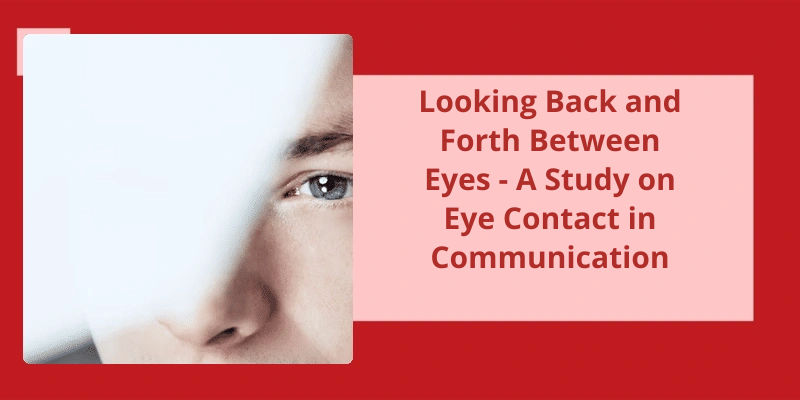Well, well, well, here we go again with the infamous question – "Can we meet?" Ah, the classic attempt at trying to seem interested in someone's company while simultaneously placing them in a position to either accept or decline. How delightful. It's no wonder why some people dread these kinds of inquiries given the way they’re so casually thrown out without much thought or consideration to the other person's schedule and preferences. Nevertheless, I suppose one could argue that the question itself is harmless enough, even if it can come across as insincere at times. But then again, what do I know?
What Is the Meaning of Can We Meet?
The meaning of “can we meet?” is more than just asking for a physical meeting. It’s a question that conveys the desire to connect with someone; to share thoughts, ideas, and emotions. This request could be for business purposes, personal reasons, or perhaps just to catch up with someone they havent seen in a while. It demonstrates the need for human interaction, which is essential for our emotional and mental well-being.
This type of communication is more personal and meaningful than virtual interactions. It allows individuals to read the other persons body language, facial expressions, and tone of voice, which can help to avoid misunderstandings and strengthen relationships. It also provides an opportunity to connect on a deeper level without distractions from technology.
Furthermore, “can we meet?” is an invitation for collaboration and brainstorming. Meeting in person enables individuals to collaborate on projects, exchange ideas, and communicate more efficiently. It can lead to new opportunities and innovative ideas that wouldn’t have been possible through virtual communication. Collaboration in person can also foster a sense of teamwork, which can lead to better results and ultimately, success.
It’s a request for a connection with another human being, a chance to exchange ideas, learn from each other, and collaborate. It’s an essential part of human communication that should never be replaced by technology.
The Cultural Differences in the Meaning of “Can We Meet?” in Different Countries
In some countries, the phrase “can we meet?” may be viewed as a casual invitation, while in others it may carry a stronger implication of a formal get-together. Cultural differences in the interpretation of this phrase can often lead to misunderstandings and miscommunications.
Can We Meet in a Sentence?
The way we communicate with one another can be a complex affair, particularly when it comes to the nuances of language and grammar. One such example of this comes when considering the difference between two similar yet distinct question sentences, Could we meet and Can we meet. While they may appear interchangeable to some, there are subtle distinctions in usage that reveal a great deal about the context in which they’re asked.
Firstly, lets consider the more formal of the two – Could we meet. This sentence is often used in situations where we’re speaking with someone who’s older or more senior than us, as it expresses a sense of deference and respect. It may be used in a professional setting or during formal events, and highlights our desire to be polite and courteous.
Alternatively, the more informal Can we meet is often used when we’re speaking to friends, family members, or colleagues who we’ve a more relaxed relationship with. It conveys a sense of familiarity and comfort and is often used with individuals who we’re on a first-name basis with.
However, it’s worth noting that these distinctions aren’t set in stone, and the context of the conversation can play a significant role in determining which question sentence is more appropriate. For example, we may use Can we meet in a professional setting if we feel like a more casual tone is appropriate, or Could we meet with friends if we want to add an extra level of formality or respect.
In general, though, it’s important to be aware of the differences between these two question sentences, so we can use them appropriately and effectively in different situations. By doing so, we can ensure that our communications are clear, professional, and respectful, no matter who were speaking with.
Whether to use Could we meet or Can we meet depends solely on the context it’s used in. The difference might seem subtle, but it can greatly impact the way we’re perceived by others. Ultimately, it’s always best to err on the side of caution and be mindful of the situation, as this will help us communicate more effectively and build meaningful relationships with those around us.
Examples of Contexts Where Each Question Sentence (Could We Meet and Can We Meet) Is More Appropriate.
In certain situations, “Could we meet?” may be better suited for a polite or formal inquiry, while “Can we meet?” may be better for a more casual or direct request. It ultimately depends on the context and tone of the conversation.
Shall I Meet You or Can I Meet You?
The question of whether to use “can” or “shall” when inviting someone to meet can often come down to the tone you want to set. Both are technically correct, but “can” is more casual and conversational, while “shall” carries a more formal, almost business-like feel. “Could” falls somewhere in between as it implies a sense of deference or politeness.
When deciding which word to use, it’s important to consider context and your relationship with the person youre inviting to meet. If youre asking a close friend or family member to meet up, “can” is probably the better choice as it feels more casual and friendly. However, if youre reaching out to a colleague or someone you don’t know well, “shall” might be more appropriate as it sets a more formal, respectful tone.
Both are perfectly valid ways to invite someone to meet, and neither is inherently better or worse. However, it’s worth taking a moment to consider the implications of each word and what kind of impression you want to make before sending that message or making that call.
Now that we’ve established the subtle difference between “meet up” and “meet,” let’s explore how we can use these phrases in various contexts. Whether you’re scheduling a business meeting or catching up with a friend, the right choice of words can make all the difference in setting the tone for your interaction. So, let’s dive in and discover the nuances of using “meet” and “meet up.”
Can We Meet Up or Can We Meet?
When it comes to arranging to meet another person, there are a few different phrasal verbs that can be used to express this intention. Two of the most common options are “meet up” and “meet”. While these two phrases have a very similar meaning, there are some subtle differences in how they’re used and the connotations that come with them.
For example, you might suggest to a friend that you “meet up for coffee next Saturday”, indicating that you want to plan ahead and make sure you’ve a specific time and place to see each other. On the other hand, “meet” is often used to refer to more spontaneous or last-minute encounters. For instance, you might text a colleague to ask if they can “meet for a quick chat in the break room”, implying that you don’t need to make firm plans in advance.
Both phrases are perfectly acceptable ways to express your desire to see another person in person, and the choice between them is largely a matter of personal preference. However, understanding the subtle differences between these two phrases can help you use them more effectively in your own conversations and better understand the intentions of others when they use them.
Examples of Using “Meet Up” and “Meet” in Conversation
- Let’s meet up for lunch tomorrow.
- I’m looking to meet new people in the area. Have you tried any local meetups?
- We should meet at the coffee shop on Main Street.
- I don’t remember where we first met, do you?
- Do you want to meet up before the concert starts?
- She suggested we meet at the park for a picnic.
- We’ve a team meeting scheduled for next Monday.
- I’m excited to meet the new members of our club.
- Let’s plan a meet and greet for all the new employees.
- We met each other when we were studying abroad in Spain.
Conclusion
In conclusion, while the question "Can we meet?" seems straightforward enough, the truth is that it’s loaded with all sorts of hidden meanings and implications that are often lost on those who lack the necessary contextual awareness. From the tone of voice used, to the time and place suggested, to the subtextual intentions underpinning the question, every aspect of this seemingly innocuous query can be subject to misinterpretation and confusion. As such, one must approach such requests with caution, empathy, and a healthy dose of skepticism, lest they fall prey to the pitfalls of miscommunication and misunderstandings that so often plague our interactions in this complex and chaotic world. So, can we meet? Sure, why not? But let's make sure we're on the same page about what that really means first.






